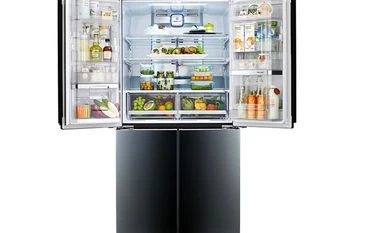The GST Council on Sunday unanimously agreed on July 1 rollout of the Goods and Services Tax despite some pending issues, with Union Finance Minister Arun Jaitley saying that India does not have the "luxury of time" to defer implemention of the new indirect tax regime.
"The GST Council categorically agreed on the implementation of GST from July 1," Jaitley told reporters here after the penultimate meeting of the Council before the single pan-India GST is officially rolled out on the midnight of June 30, replacing the existing myriad central and state levies on both goods and services.
"A number of companies and trades have been raising the issue of the lack of their own preparedness. We do not have the luxury of time to defer implementation of GST," he said, announcing that the next meeting of the Council headed by him would be held on June 30.
Regarding the government's preparedness, Jaitley noted that over 80 per cent registered entities have already received their provisional GST registrations.
"If you take from the old system of registrations, then there are 80.91 lakh assessees, of whom some will get excluded. Registrations are going on satisfactorily and 65.6 lakh have already taken provisional registration, which is good enough to file returns," he said, adding that some new trades will come under the GST for the first time.
In this connection, the Finance Minister said that the Council has allowed businesses a relaxation of time for the first two months (July-August) for filing their returns. These would also need to submit only a simple declaration initially, and would have time to furnish the exact "invoice-by-invoice data" later.
The GST Council on Sunday also decided on a two-slab structure for taxing lottery tickets, which Jaitley said proved to be a contentious issue.
While state-run lotteries will be taxed at 12 per cent under the GST, state-authorised private lotteries will attract tax at the highest rate of 28 per cent.
The Council deferred a decision on e-way bills due to lack of consensus, which means states which have an e-way bill structure in place can continue with it, while others are exempt.
"Till a consolidated rule is framed by consesnsus, the transient rule will continue," Jaitley said on the e-way bill issue.
E-way bill is an electronic way bill for movement of goods which can be generated on the GST Network (GSTN) portal. Movement of goods of more than Rs 50,000 in value cannot be made by a registered person without an e-way bill.The e-way bill will be optional under the Goods and Services Tax, as decided by the GST Council.
Briefing reporters here during a pause in the Council's 17th meeting, Andhra Pradesh Finance Minister Yanamala Ramakrishnudu said that he has requested that textiles and fertilisers be exempted from the GST.
He also said that commercial tax from all border posts will be removed from July 1 with the implementation of the GST.
Ramakrishnudu also said that the Council turned down all the other representations for revision in rates, after it had agreed to revision for a numeber of items at its previous meeting here on June 11.
Maharashtra Finance Minister Sudhir Mungantiwar said that the e-way bill will be optional under GST.
"States which have an e-way bill structure in place can continue with it. However, since Maharashtra does not have a e-way bill facility, the state will not be implementing it," he said.
The Council also considered the revision of tax on hotel rooms and decided that while those in the range of Rs 2,000-Rs 7,500 a day tariff would face 18 per cent tax, rooms with daily tariff above Rs 7,500 would be taxed at 28 per cent. Restaurant service in 5-star hotels would attract 18 per cent tax, Jaitley said.
He revealed that only three states -- Tamil Nadu, Punjab and Jammu and Kashmir -- are still to complete their necessary legisaltive formalities for implementing the GST regime.
You’ve reached your limit of {{free_limit}} free articles this month.
Subscribe now for unlimited access.
Already subscribed? Log in
Subscribe to read the full story →

Smart Quarterly
₹900
3 Months
₹300/Month
Smart Essential
₹2,700
1 Year
₹225/Month
Super Saver
₹3,900
2 Years
₹162/Month
Renews automatically, cancel anytime
Here’s what’s included in our digital subscription plans
Exclusive premium stories online
Over 30 premium stories daily, handpicked by our editors


Complimentary Access to The New York Times
News, Games, Cooking, Audio, Wirecutter & The Athletic
Business Standard Epaper
Digital replica of our daily newspaper — with options to read, save, and share


Curated Newsletters
Insights on markets, finance, politics, tech, and more delivered to your inbox
Market Analysis & Investment Insights
In-depth market analysis & insights with access to The Smart Investor


Archives
Repository of articles and publications dating back to 1997
Ad-free Reading
Uninterrupted reading experience with no advertisements


Seamless Access Across All Devices
Access Business Standard across devices — mobile, tablet, or PC, via web or app
)

